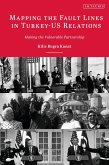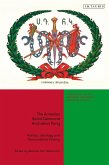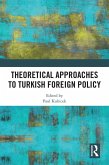For the last seventy years, experts have tried to define the nature of Turkey's partnership with the US. While Turkish-US relations have always been susceptible to different crises, they enjoyed a brief "golden era" in the 1950s. This book argues that a false nostalgia about that period - when the strategic interests of two countries fully converged - has distorted analyses by scholars and policymakers ever since. To provide a more accurate assessment, this book look at the patterns of crises between the two countries throughout history and how these relate to the current points of tension in Turkish-American relations today. It coins a new conceptual framework to understand the Turkey-US partnership: the "vulnerable partnership". The book outlines the key causes of this vulnerability, showing that for the last 70 years, there have been recurring frictions and faultlines that have been repeated across different political periods. These especially involve the US congress, public opinion, Russia, and crises in the Middle East. Based on journalistic, archival and scholarly sources, the topic of the book is at the intersection foreign policy studies, Middle East politics, the history of Turkish-American relations, and foreign policy making.
Hinweis: Dieser Artikel kann nur an eine deutsche Lieferadresse ausgeliefert werden.
Hinweis: Dieser Artikel kann nur an eine deutsche Lieferadresse ausgeliefert werden.









